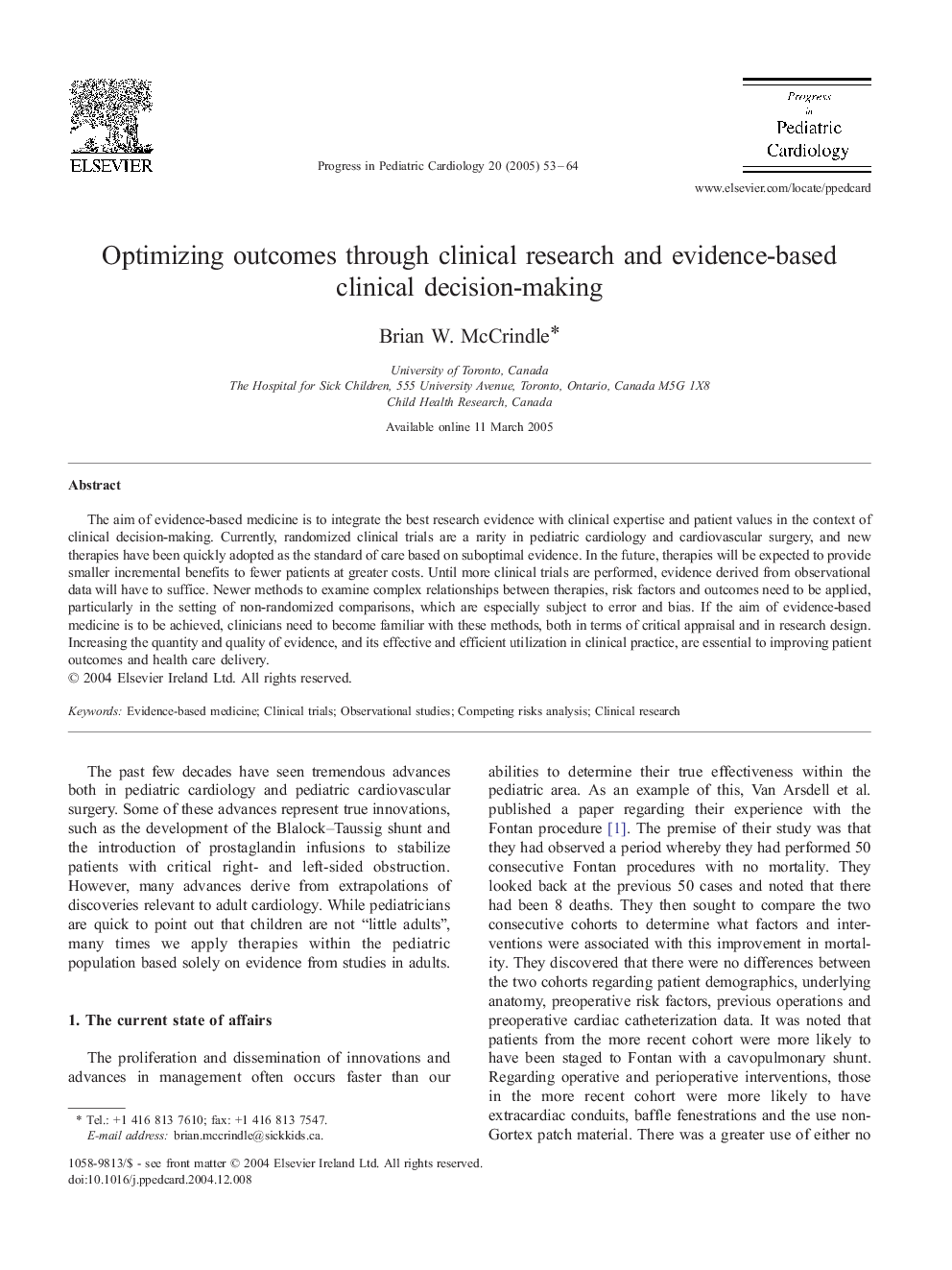| Article ID | Journal | Published Year | Pages | File Type |
|---|---|---|---|---|
| 9179314 | Progress in Pediatric Cardiology | 2005 | 12 Pages |
Abstract
The aim of evidence-based medicine is to integrate the best research evidence with clinical expertise and patient values in the context of clinical decision-making. Currently, randomized clinical trials are a rarity in pediatric cardiology and cardiovascular surgery, and new therapies have been quickly adopted as the standard of care based on suboptimal evidence. In the future, therapies will be expected to provide smaller incremental benefits to fewer patients at greater costs. Until more clinical trials are performed, evidence derived from observational data will have to suffice. Newer methods to examine complex relationships between therapies, risk factors and outcomes need to be applied, particularly in the setting of non-randomized comparisons, which are especially subject to error and bias. If the aim of evidence-based medicine is to be achieved, clinicians need to become familiar with these methods, both in terms of critical appraisal and in research design. Increasing the quantity and quality of evidence, and its effective and efficient utilization in clinical practice, are essential to improving patient outcomes and health care delivery.
Keywords
Related Topics
Health Sciences
Medicine and Dentistry
Cardiology and Cardiovascular Medicine
Authors
Brian W. McCrindle,
